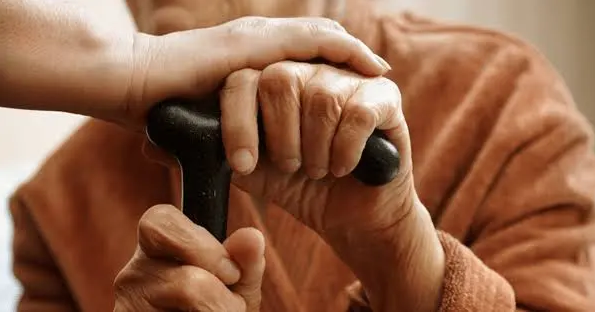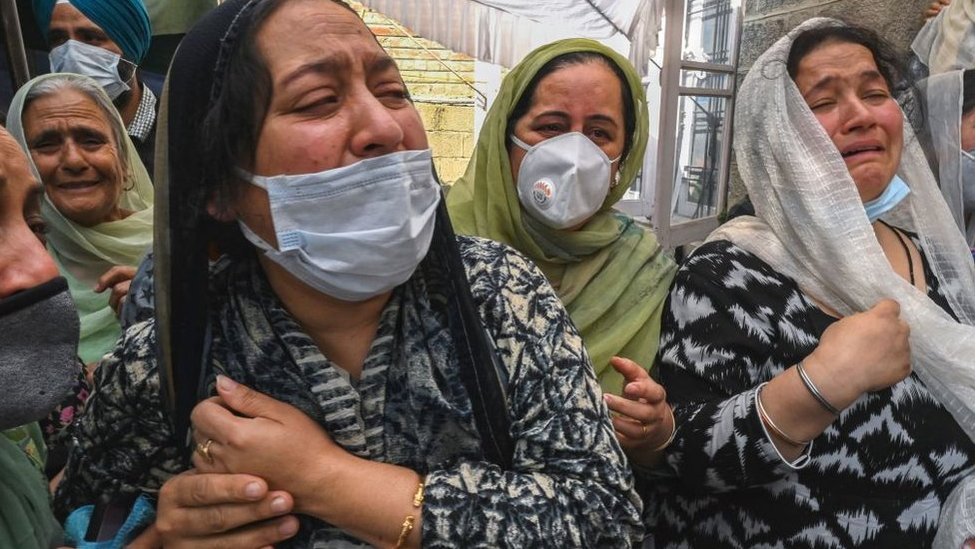The Tale of Four Sons: A Heartbreaking Reality in Modern Kashmir
By: Javid Amin
A Wake-Up Call to Reassess Family Values and Responsibilities – In the picturesque valleys of Kashmir, a somber story unfolds—a mother, blessed with four well-settled sons who own houses, cars, and comfortable lives, is forced to decide through a toss of a coin where she will live for a month. This woman, despite having children who could offer her every comfort, is deprived of a proper washroom, a decent room, or consistent care.
This painful reality is a stark reminder of shifting values in modern Kashmiri society. It is not just her story but the story of many aging parents who, after dedicating their lives to their children, are left grappling with loneliness and neglect.
A Cultural Shift: From Togetherness to Fragmentation
Kashmir, once celebrated for its rich culture of respect for elders and close-knit families, is witnessing an unfortunate departure from these traditions. A few decades ago, such stories were unheard of. Joint families cared for their elders with devotion, and no parent had to wonder where they would spend their next month.
But with globalization, the pursuit of individual success, and the influence of modern lifestyles, familial bonds have weakened. Parents often encourage their children to move abroad for education and lucrative careers, inadvertently setting the stage for future estrangement.
The Ego Trap: A Double-Edged Sword
As parents push their children to study and work overseas to fulfill societal expectations, they seldom anticipate the emotional distance this creates. While it satisfies immediate ego and societal validation, it leads to a reality where these children cannot return home easily. The unintended consequence? A growing number of elderly parents find themselves alone, their once-bustling homes now eerily silent.
The Role of In-Laws: A Delicate Balance
Another factor contributing to this issue is the lack of balance in familial dynamics. Many decisions regarding elder care are influenced by daughters-in-law, and in some cases, this leads to neglect of the husband’s parents. While it’s essential to maintain harmony in a household, it’s equally important for sons to ensure their parents’ needs are prioritized.
This calls for better communication, mutual respect, and a clear understanding of roles within the family. Sons must navigate these dynamics with empathy, ensuring both their parents and spouses feel valued.
A Growing Crisis: Why We Need to Act Now
The neglect of elderly parents is not just an emotional tragedy—it’s a societal crisis. It reflects a breakdown of values, a failure to uphold the principles of care, respect, and gratitude that are fundamental to Kashmir’s culture.
If this trend continues, it could have far-reaching consequences:
- Loneliness Among Elders: Isolation can lead to depression, anxiety, and other mental health issues among aging parents.
- Loss of Cultural Heritage: The disconnection between generations may result in the erosion of traditional values.
- Social Disconnect: Neglected elders often feel alienated, leading to a lack of intergenerational understanding in society.
What Can We Do to Change This?
1. Foster Open Communication in Families
Encourage conversations about responsibilities toward aging parents. Sons and daughters-in-law must collectively decide how to provide care and support.
2. Embrace the Joint Family Model Where Possible
While nuclear families are becoming the norm, reviving the spirit of joint families can help strengthen intergenerational bonds.
3. Set Clear Boundaries in Relationships
Husbands must ensure that their parents’ needs are met without creating unnecessary friction within the household. This requires setting boundaries while maintaining mutual respect.
4. Promote Financial Independence for Parents
Parents should be encouraged to save for their later years, reducing their dependency on children for financial support.
5. Revisit Cultural Values
Community leaders, educators, and religious scholars must emphasize the importance of caring for one’s parents in sermons, schools, and social gatherings.
6. Develop Support Systems for the Elderly
Society should establish support groups, elder care facilities, and counseling services for aging parents who feel neglected.
Are We Heading in the Right Direction?
A Call for Introspection
As Kashmiris, we need to pause and reflect on where we are headed. Are we prioritizing material success over family? Are we letting societal pressures dictate our choices at the cost of our parents’ happiness?
Community Responsibility
The solution to this growing crisis lies not just in individual families but in the community. It’s time to revisit the principles of compassion, care, and mutual respect that have long been the hallmark of Kashmiri culture.
Key Takeaways for Families
Do’s
- Prioritize Elderly Care: Make your parents’ comfort a non-negotiable part of family life.
- Stay Connected: Regular calls, visits, and gestures of love go a long way in making parents feel valued.
- Plan Ahead: Discuss and plan for your parents’ care well in advance.
Don’ts
- Don’t Let Ego Drive Decisions: Avoid making career or family decisions solely based on societal expectations.
- Don’t Shift Responsibility: Caring for parents is a shared duty between siblings.
- Don’t Ignore Their Emotional Needs: Physical care is important, but emotional support is just as crucial.
Bottom-Line: Rebuilding Bonds, Restoring Values
The story of the four sons is a poignant reminder of the need to realign our priorities. Parents are the backbone of our lives—they deserve respect, care, and unconditional love.
Kashmir’s culture is rooted in empathy, and it’s time we revive these values to ensure that no mother or father feels abandoned. Let’s pledge to nurture our family bonds and create a society where every elder feels valued, respected, and loved.



